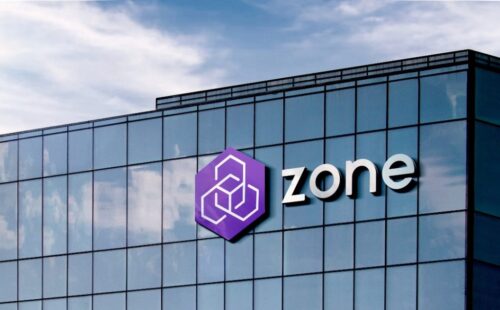
On March 12, 2025, Nigeria’s Minister of Information, Mohammed Idris, published a notable commentary in a global blockchain publication, signaling a crucial shift in the country’s approach to blockchain technology. His message was clear: Nigeria is expanding its outlook beyond cryptocurrency, viewing blockchain as a transformative tool for governance, transparency, and public service delivery.
According to Idris, blockchain holds the potential to revolutionize public infrastructure in areas such as land registry, identity systems, and supply chain management. While the country has historically taken a cautious stance toward cryptocurrency, its posture toward blockchain has been more receptive. Notable milestones include the 2021 launch of the eNaira, Africa’s first central bank digital currency (CBDC), and the approval of a National Blockchain Policy in 2023. Additionally, the government, through the National Information Technology Development Agency (NITDA), has provided scholarships to support blockchain-focused talent development.
Nigeria’s greatest test lies in integrating blockchain into its financial ecosystem. The promise lies in regulated or permissioned blockchains, digital ledgers with restricted access, which offer enhanced control, transparency, and compliance. Such models are already in use in regions like the European Union, Singapore, and the UAE for functions ranging from identity management to real estate registration.
Leading Nigeria’s exploration of regulated blockchain is Zone, a local fintech company building blockchain-based payments infrastructure. Since 2022, Zone has deployed blockchain solutions across ATMs and point-of-sale terminals. In 2024, the company processed transactions worth ₦1 trillion (approximately $636 million), signaling growing adoption within Nigeria’s financial sector.

Zone’s CEO, Obi Emetarom, recently released a white paper outlining how regulated blockchain can underpin the future of financial services across Africa. He emphasizes that blockchain, paired with artificial intelligence, is the natural progression in the evolution of financial infrastructure—delivering automation, transparency, and cost-efficiency.
He identifies three key limitations of traditional finance that blockchain seeks to resolve: physical representation of assets, manual operations that slow down processes, and discretionary regulatory enforcement that lacks real-time compliance. Regulated blockchain, Emetarom argues, digitizes assets, automates processes through smart contracts, and embeds regulation directly into code—minimizing human error and bias while ensuring financial integrity.
Zone’s roadmap to full regulatory adoption involves three phases. First is regulatory licensing to operate within existing frameworks. The second phase sees regulators actively participating in the network. The third and final stage involves embedding regulation directly into the blockchain protocol, where compliance is enforced programmatically.
Addressing concerns about balancing regulatory oversight with blockchain’s core principles of transparency and security, Emetarom explains that removing discretionary human actions through immutable code enhances trust, fairness, and user protection.
Lending, an essential pillar of finance is also being reimagined. In a blockchain-based system, loans can be processed through decentralized protocols using digital collateral, or eventually, cash flow and tokenized assets such as real estate and equities. These innovations will expand access to lending while improving security, transparency, and automation.
Looking ahead, Emetarom envisions a future where Nigeria’s financial services are underpinned by blockchain and AI. In this vision, the backend is a compliant, programmable blockchain infrastructure, and the frontend is an AI-powered financial assistant delivering personalized financial services at scale.
Zone’s long-term vision is clear: to pioneer a regulated blockchain framework that accelerates financial inclusion, operational efficiency, and long-term economic growth across Nigeria and the African continent.


